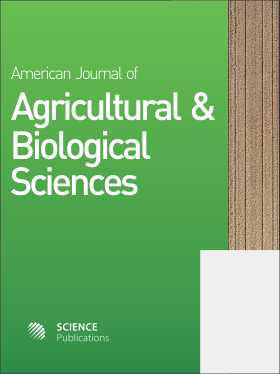SCREENING FOR CUCUMBER MOSAIC RESISTANT LINES FROM THE OVULE CULTURE DERIVED DOUBLE HAPLOID CUCUMBERS
- 1 Plant Biotechnology Program, Graduate School, Chiang Mai University, Chiang Mai, 50200, Thailand
- 2 Plant Biotechnology Research Centre, the Royal Project Foundation, Chiang Mai, 50200, Thailand
- 3 Department of Plant Science and Natural Resources, Faculty of Agriculture, Chiang Mai University, Chiang Mai, Thailand
Abstract
CMV is one of the major destructive viruses worldwide and commercial CMV resistant cucumber is very rare. Therefore we aimed to establish the ovule derived resistant lines used for the breeding program. Haploid plants of sixty-eight cucumber lines were successfully obtained by culturing the un pollinated ovaries harvested one day before an thesis on a modified MS medium supplemented with BAP and IAA at the ratio of 2:1 which was optimal to induce embryogenesis in most of the tested lines. For whole plant regeneration, another modified MS medium was used supplemented with a combination of 6-Benzylaminopurine (BAP) and Indole-3-Acetic Acid (IAA) (2:1) or BAP and IAA/6-(gamma, gamma-dimethylallylamino) purine (2ip) and IAA (5:1) and 5 ppm AgNO3. Ploidy levels of the regenerants were determined by cytological analysis. Thirteen out of 42 clones derived from 14 accessions showed a chromosome number of n = 7 and chloroplast number of 6/pair of guard cell, 24 lines were auto-dihaploid with n = 14 and a chloroplast number of 11-12/pair of guard cell. Twenty-eight Double Haploid (DH) lines were mechanically inoculated with CMV and the level of resistance was evaluated by using DAS-ELISA. Ten highly Resistant lines (R) included 70S2, 91e, 91.1, 93S4-1, 93S42-, 95S1-2, 95S2 DHS1, 117S2-1-3, 136.1 and 194S1 did not show any virus symptom and gave negative ELISA results. Twelve moderately resistant clones were identified including two clones from line 11, three clones from line 93, four clones from line 91 and one clone each from line 117S2 and 123, whereas clone 11.4 was moderately susceptible. Five DH clones; 117S2-1-1, 117S2-2, 117S2-4, 117S2-7 and 117S2-8were classified as highly susceptible.
DOI: https://doi.org/10.3844/ajabssp.2014.261.269

- 6,398 Views
- 6,083 Downloads
- 20 Citations
Download
Keywords
- CMV Resistance
- Cucumber Screening
- DAS-ELISA
- Ovule Culture
- Double Haploid Cucumber
